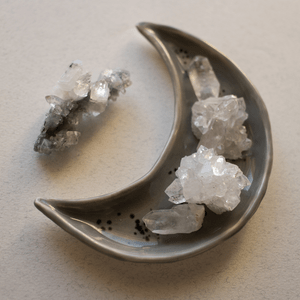People tend to shy away from journaling because they find it boring. Or it could be due to them experiencing a breach of privacy from their parents when they tried to have one as a kid. That has completely turned them away from being able to record their thoughts for fear of judgment comfortably.
Whatever the case, it is essential to acknowledge your hang-up.
This is for your benefit! Journaling is a remarkable way to sort out your thoughts and feelings. It is incredible how much you can learn about yourself from simply journaling. Let’sLet’s take a look at what journaling can do for you!
This article is about journaling, its importance, the different types, and tips for getting started.

What’sWhat’s So Great About Journaling?!
Journaling is another way to express yourself. Whether you have some thoughts or feelings, you would like to filter through or even discover some that you may not have recognized previously. It is another technique that is substantial in figuring out who we are. Journaling helps you to process those thoughts and feelings.
How many times have you been lost in your thoughts? Of those times, how often were you able to adequately remember those thoughts?
You’dYou’d be surprised at how much we forget. You may remember the more jarring thoughts and emotions, but what about the smaller, detailed ones. Just because you don’t remember them does not mean they are insignificant. Sometimes they are crucial. They could keep us from making a mistake.
Pros
There are many pros to consider when determining whether to begin your journey of journaling:
- Helps you to record your thoughts. This is important to understanding yourself and crafting solutions to any issues you may face. The phrase “Out of sight, out of mind” can only do so much for you. Problems never go away. They only fester and grow. It is better to be ahead of that.
- Assists with identifying emotions. If you have not already, I recommend looking at How Your Emotional Well-being Influences You. This article explains just how big of a role your emotions play in your daily life. The emotion wheel provided is a fantastic tool for identifying your feelings to understand yourself better or grasp a situation.
- Destresses you. Being able to express yourself effectively does wonder! Literally, feel as though a weight has been lifted.
- Helps you to prioritize. Allows you to organize and determine what is essential in your life.
- Self-realization. Journaling is all about YOU. Everything about YOU. Your thoughts, feelings, dreams, ambitions, fears, sorrows, EVERYTHING. While it can be scary to display yourself, it is all for YOU to interpret and analyze. Nothing but good will come from this.
I am sure there are other pros that I have not addressed; therefore, additional resources are included at the end of this article.
Cons
While I do not really see any cons to journaling, here are some that can be considered:
- Not liking what you see, learning about yourself, and making changes. As I mentioned in the pros portion, journaling is all about you. Learning about yourself is not simple. It takes time, effort, and courage. Sometimes we feel as though we do not like ourselves. Facing ourselves is scary and uncomfortable.
- The possibility of someone finding your entries. I find this to be a more deep-rooted apprehension from childhood. Those that had overbearing parents can relate. While I do not solely blame them for their curiosity to understand their child, this tactic can leave behind anxiety in the child. Again, I will reiterate journaling is exclusively for your benefit. Don’t let fear and anxiety continue hindering you.
- I fully understand how you feel. This happened to me as a child. It took me a long time to overcome that anxiety. I still feel self-conscious and overwhelmed sometimes, but my determination to reap the benefits of doing this practice is stronger than those feelings. I do not have to explain myself to anyone if I do not want to.
Why You Should Journal
Journaling is more than simply writing about your day-to-day. It can be on a surface level or on a deeper level. As we get into the different types of journaling, we will see the many different ways of self-exploration and realization. But first, let’s examine why keeping a journal is highly beneficial.
Just like how journaling can help you understand your emotions and emotional state, it can also be used to improve your mental well-being. Journaling is a part of practicing mindfulness. Aside from meditation, there is no better way to face and learn about yourself.
Journaling benefits our mental health and well-being by promoting mindfulness of ourselves. Here are some potential benefits:
- Increases overall content and happiness
- Lowers stress and anxiety
- Increases self-confidence
- Promotes achieving wants and dreams
- Enhances emotional awareness
- Greater memory retention and comprehension
- Sparks creativity
Journaling does have to take place for hours on end in one sitting. You can journal in just 5 minutes once a day or multiple times. It is totally up to you!

Types of Journaling to Consider as A Journaling Beginner
When you think of journaling, you probably think about writing in a fancy book with your fancy pen, probably in a cursive script. Talking about your day, possible crush, or the latest gossip.
Well, I am here to tell you that journaling is not precisely that. It is only one form of journaling.
Have you ever randomly doodled on the paper you were taking notes on?
What if I told you that could be a type of journaling?
Surprise! Let’sLet’s take a look at some different types of journaling aside from the general blank journals. Remember, you don’t have to just commit to a kind of journaling. If any of these peaks your fancy, try them out! I use 3 of the types mentioned below.
Guided Journals
There are all sorts of guided journals on the market. These are designed for the specific purpose of giving ideas and guidance to the user. Journaling can be pretty intimidating, especially for beginners. Sometimes, we do not know how to start. Luckily these journals take away the guesswork.
There is a guided journal out there for everyone. Whether you want a daily journal that asks you a question to stimulate your thoughts or a journal that helps to identify how you are feeling. There are even journals that allow you to think about the things you should be grateful for in your life call gratitude journals.
Check out my Mindfulness Guided Journal- Check-In With Yo’selfYo’self. The spiral-bound copy is available here or in paperback on Amazon. Learn how to effectively journal and practice mindfulness all in one. Be surprised by the new things you learn about yourself! This journal even includes access to a free mindfulness booklet PDF that you can save and print to use anywhere.
Bullet Journals
These neat journals allow you to use a combination of journaling styles in one place. It is more like a freeform journal. Instead of having lines on every page, some blank and dotted pages can be included. You can use these pages for many things, such as drawings or making boxes.
Perhaps you would like to make a pie graph to compare solutions to your thoughts and see where they overlap. Well, you have the space to do it and make it look pretty. Or maybe you would like to create your own daily layout. You have the freedom to design your journal pages however you like.
Not only that, but sometimes seeing a bunch of lines on a page may be daunting. It is less intimidating to know that you can do anything on these pages.
Video Journaling
This one is so interesting. It is not new, though. Making small journal entries in the form of videos does not seem farfetched, especially when you think about Snapchat and TikTok. While people may not have typically used those apps for that purpose, it is not hard to imagine being able to find an app to do something like that privately.
Honestly, many popular snippet videos seem to be some type of journal entry. In these videos, people share an opinion and talk it through. This is a prime example of journaling. As mentioned, journaling can record a thought process or emotional response to an issue or experience. It allows you to understand how your brain functions to give insight into the best possible solutions or simply reprieve.
In fact, I took the time to research video journaling apps. Here are some that I found:
- Daylee: Your Video Diary
- 1 Second Everyday: Video Diary
- Video Diary with Mood Tracking
Journal Apps
In addition to video journal apps, some apps serve as regular journals. Whether you are recording your voice or typing out your entries. Take pictures and add them to your entries. It is incredible what you can do with these apps.
I do understand that this may not be for everyone. Personally, I prefer to use paper and pen. Yes, I have special pens and markers just for journaling. It is one of my simple pleasures in life!
Here are some journal apps that are worth taking a look at. You can find them in either Google Play or Apple Store:
- My Diary- Daily Diary Journal
- Day One Journal: Private Diary
- Daily Diary: Journal with Lock
- Gratitude: Self-Care Journal
- Daylio Journal- Mood Tracker
- Prompted Journal
This is a superb option for those that are apprehensive about someone being able to find their physical journal or if you need to write when it is unavailable. Many of the journal apps listed above give the option to set a password for the app separate from your phone or device.

Creative Journals
Creative journals are exactly how it sounds. These types of journals promote being creative through means of the art of any kind. You can use any means of recording your thoughts, dreams, and emotions. This is perfect for artsy people.
Art journals can include writings, drawings, and scribbles to fully convey themselves. Typically, when seeking this type of journal, you want to use a journal with heavier paper so that the utensil you use does not bleed through the page.
I have used all sorts of utensils, from colorful gel pens and markers to calligraphy pens. Trust me, you do not want your art to bleed through the page (talking from experience). While art journals may be pricier due to the higher cost of thicker paper. Consider checking out sketch pads for a cheaper alternative, although the book’s cover won’t be as pretty.
Travel Journals
Do you travel a lot or dream about traveling? This type of journal is for you! Collect pamphlets or print images of places you would like to visit and what you dream of doing in those places. Perhaps you visited somewhere and would like to create detailed entries of your days there with photos. There is no limit to what you can do with your travel journal.
These journals are so neat in that you will not be able to forget any of the things you did while traveling. Reminisce and become lost in those memories while you look at your travel journal. Or look to your travel journal to figure out your next vacation!
Field Journals
Are you a person that enjoys hiking and being in nature?
Why not try out this type of journal? Next time you hike or walk in nature, carry a small pocket-sized journal booklet and pen. Write about anything that comes to mind. It can be about the surroundings or just random thoughts.
After you get back home, take a look at everything you recorded. From there, you can ponder more profound into the meaning of your entry or add additional thoughts and comments that arise. Sometimes helps to stimulate our brains and thought process. Who knows, maybe you’ll find the solution you have been looking for!
Food Journals
Food journaling is an absolute lifesaver, especially for those with food sensitivities or simply trying to change their eating habits. It may sound meticulous in recording what you eat throughout the day, but it is crucial if you are trying to make changes.
Sometimes people do not realize just how much or unhealthy they are eating. If you have digestive issues, you can narrow down the cause by recording everything you eat at certain times of the day. It is not just for losing weight.
I have digestive issues. It is not as severe as IBS, but it is enough for me to try and figure out what I am eating that is causing the problem. I could narrow down what foods elicited a negative response by recording what I ate and the times. Since then, those foods have been removed from my diet, and I feel much better!
Journaling for Beginners Tips
Before you start journaling, create your intentions for this activity. Setting an intention for this activity will help to guide you daily with completing it. Make sure to make your intentions easily obtainable. For instance, some intentions you could use re:
- I intend to spend at least 5 minutes daily on the journaling of my choice.
- I intend to be completely honest with myself.
- I intend to try out at least 3 of the journaling types from this list over 2 weeks to find what I like.
- I intend to give myself a fair chance at learning and understanding myself.
- I intend to take my time so that I will not become overwhelmed.
If you have an aversion or no motivation to journal, grab a paper and pen and write down every thought and emotion you feel associated with journaling. This does not have to be done in one sitting. If needed, spend a little time for a few days to compile a page or written observations. Read over what you wrote down to understand yourself. Address the issue that you see.
If the issue is that you find journaling to be boring, then take a look at the different types and find something that fits you. On the other hand, if it is due to the anxiety of someone finding it, look into the app-based journals that use passwords.
For those that are scared to address or learn about yourself, get into the habit of reciting this mantra to yourself, ““I create and deserve happiness.”” Empower yourself. The journey of journaling is a means to help you ultimately create happiness for yourself and those around you.
Nothing is impossible for you!
Additional Journaling Resources
10 Types of Journaling for Peace of Mind by Skillshare
20 Types of Journals to Keep by Intelligent Change
10 Different Types Of Journaling & Which Writing Type is Right for You by Goodwall Blog



